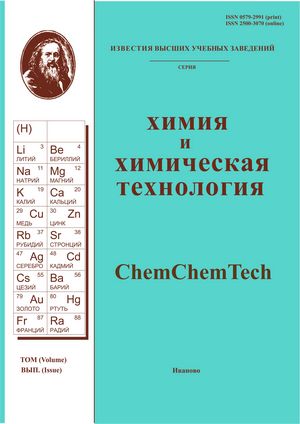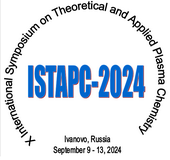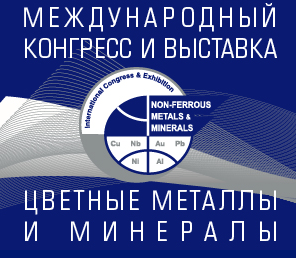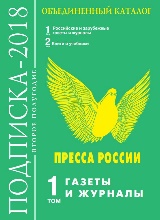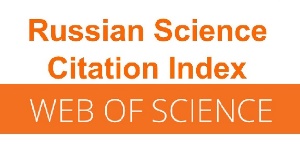ИСТОРИЯ РАЗВИТИЯ И ПРИМЕНЕНИЯ АНТИОКИСЛТЕЛЬНЫХ ПРИСАДОК ДЛЯ ТОПЛИВ И МАСЕЛ
Аннотация
История развития и усовершенствования антиокислительных присадок развивается и меняется по мере развития как машиностроительной отрасли, так и нефтехимической. В данной статье говорится о важности применения антиокислительных присадок к топливам и маслам. Требования к качеству топлива стали сильно ужесточаться в связи как с экологическими, так и с требованиями к эксплуатации автомобиля. Как правило, новые присадки разрабатывались по мере усовершенствования и развития техники и вследствие ужесточения экологических норм. В статье приведен предполагаемый механизм действия присадок в топливе. Сегодня наблюдается тенденция производства двигателей, которые работают при более высоких температурах, и следует ожидать, что содержание антиокислительных присадок будет расти, причем будут применяться те, которые смогут выдерживать высокие температуры. Анализ мировой литературы за последние 30 лет показал, что в процессе создания эффективных присадок к топливам и маслам исследовалась возможность использования для этих целей многочисленных органических соединений. Без преувеличения можно сказать, что в качестве присадок исследованы практически все классы органических соединений, содержащих различные функциональные группы. В качестве эффективной антиокислительной присадки к топливам и маслам используются присадки фенольного типа и изомеры алкилфенолов. В зависимости от положения алкильного радикала в бензольном кольце существенно улучшаются показатели, так как механизм действия антиоксидантов радикального типа заключается в переносе свободного радикала от активной молекулы пероксида на молекулу фенола с образованием малоактивного, сильно экранированного радикала на атоме кислорода фенола.
Для цитирования:
Алексанян К.Г., Стоколос О.А., Солодова Е.В., Зайцева Ю.Н., Салманов С.Ю., Яруллин Н.Р., Налетова А.В., Михайлов Э.Р. История развития и применения антиокислтельных присадок для топлив и масел. Изв. вузов. Химия и хим. технология. 2018. Т. 61. Вып. 9-10. С. 120-125
Литература
Danilov A.M. Use of additives in fuels. SPb.: Khimizdat. 2010. 368 p. (in Russian).
Danilov A.M., Englin B.A., Seljagina A.A. Optimization of quality of petroleum fuels and additives. Ser. "Oil Processing". Iss. 3. M.: Tsniiteneftekhim. 1988. 63 p. (in Russian).
Kuliev A.M. Chemistry and technology of additives to oils and fuels. L.: Khimiya. 1985. 312 p. (in Russian).
Biglova R.Z., Syrlybaeva R.R., Talipov R.F. Investigation of antioxidant activity of functionalized phenols and gray oligomers of olefins and dienes. Bashk. Khim. Zhurn. 2010. V. 17. N 4. P. 84-89 (in Russian).
Mitusova T.N., Polina E.V., Kalinina M.V. Modern diesel fuels and additives to them. M.: Technique. 2002. 64 p. (in Russian).
Tukhvatullin R.F., Kolchin G.Yu., Movsumzade E.M., Mamedova P.Sh., Babaev E.R. Synthesis and study of geometry and electronic density of sterically hindered phenols used as antioxidant additives to lubricating oils. Izv. Vyssh. Uchebn. Zaved. Khim. Khim. Tekhnol. 2018. V. 61. N 4-5. P. 84-92 (in Russian).
Vipper A.B., Vilenkin A.V., Gaiysner D.A. Foreign oil and additives. M.: Khimiya. 1981. 188 p. (in Russian).
Artemov A.V. New high-performance catalysts of liquid-phase oxidizing process.Katalyz v Promysh. Catalysis and industry. 2000. N 2. P. 18 – 23 (in Russian).
Grishina I.N. Physical and chemical bases and regularities of synthesis, production and application of additives improving the quality of diesel fuels. M.: Neft I Gas. 2007. 230 p. (in Russian)
Lespade L., Bercion S. Theoretical investigation of the effect of sugar substitution on the antioxidant properties of flavonoids. Free radical research. 2012. V. 46. N 3. P. 346-358.
Guseynova S.N., Syrlybaeva R.R., Movsum-zade N.Ch., Movsumzade E.M. Thermodynamics of reactions of synthesis of cyclodimerization from dimetilsiloksana. Neftepererabotka I Neftekhimiya. 2014. N 11. P. 31-33 (in Russian).
Kolchina G.Yu., Tukhvatullina R.F., Babaev E.R., Mov-sumzade E.M. Spatial-obstructed phenols as anti-oxidation, anti-corrosion and anti-microbial additives to mineral lubricating oils. Neftegazokhimiya. 2017. N 1. P. 10-13 (in Russian).
Shilov A.E., Shul'pin G.B. Activation and catalytic reactions of saturated hydrocarbons in the presence of metal complexes. SpringerScience&BusinessMedia. 2001. V. 21. N 1. P.131-132.
Mitusova T.N., Safonova E.E., Bragina G.A., Barmina L.V. Diesel fuels and additives approved for use. Neftepererabotka I Neftekhimiya. 2006. N 1. P. 13 (in Russian).
Farzaliev V.M., Babaev E.R., Alieva K.J. Biodamage of lubricating oils under storage conditions. Transport i khranenie nefteproduktov i uglevodorodnogo syrya. 2016. N 3. P. 24-28 (in Russian).
Rudnik L.R. Additives to lubricants. Properties and application. SPb.: Professiya. 2013. 928 p. (in Russian).
Mamedova P.Sh., Farzaliyev V.M., Valiev F.M., Babayev E.R. Process optimization ortho alkylation of phenol with styrene. Neftekhimiya. 2016. V. 46. N 5. P. 1-6 (in Russian).
Bakunin V.N., Popova Z.V., Oganesova E.Yu., Kuzmina G.N., Kharitonov V.V., Parenago O.P. Changes in the structure of the hydrocarbon medium in the process of liquid-phase oxidation. Neftekhimiya. 2001. 41. N 1. P. 41-46 (in Russian).
Seleznev E.I., Levin A.Ya., Trofimova G.L., Ivanov O.V., Budanov G.A. New Sverdlova alkylphenolate additive for motor oils. Khimiya I Tekhnol. Topliv I Masel. 2009. N 4. P. 10-13.
Novikova A.A., Soloviev M.E. Quantum chemical study of oxidation reactions in unsaturated hydrocarbons. Izv. Vyssh. Uchebn. Zaved. Khim. Khim. Tekhnol. 2017. V. 60. N 7. P. 14-20 (in Russian).

